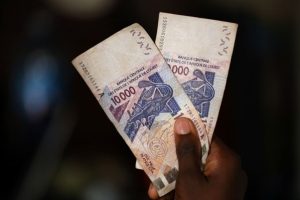On April 26, Ferdinand Ngoh Ngoh, bearer of a sealed letter from President Paul Biya to his Chadian counterpart, announced the beginnings of a lull after N’Djamena recalled its ambassador to Cameroon. “All issues were addressed and some misunderstandings were dispelled on this occasion,” said the Secretary General of the Presidency of the Republic of Cameroon. To reach this point, the two presidencies had to make a series of concessions.
First, Cameroon agreed to remove the lock on Chad’s acquisition of the assets of the Malaysian company Petronas. The file submitted on 13 February to the competition authorities of the CEMAC had so far received the green light from all the capitals of the sub-region except Yaoundé. “Chad, in the context of the acquisition of Petronas’ assets, has submitted, in agreement with the latter, an approval file in due form including the transfer contract signed between Chad and Petronas to the services in charge of competition in the CEMAC, in accordance with the community regulations in force. To date, more than a month later, it appears that only Cameroon has not responded to the letters of request for no objection sent by CEMAC to each minister in charge of trade of member countries, letters useful for the convening of the competition commission that will have to rule on the acquisition of Petronas assets by Chad,” the Chadian presidency had denounced in a statement signed on April 20.

In return, the Cemac Commission decision states, Chad has undertaken to cede to SNH part of SHT’s shareholding in Cotco. This will allow Cameroon to also increase its shareholding, which for the moment only holds a minority share of 5.17%. When SHT bought Chevrons’ 25% stake in the pipeline in 2014, Cameroon asked that Chad give up a part of it. Despite an agreement in principle by former president Idriss Déby-Itno, the Chadian side did not follow through. Nearly ten years later, and after the announcement in 2021 of the sale of ExxonMobil and Petronas shares to Chad, Cameroon returned to the charge.
The former Cameroonian minister, Amadou Ali, left on 15 April 2022 to meet with the Chadian president and ask him once again to accept that Chad should cede to his country a part of the percentages formerly in the hands of ExxonMobil and Petronas. This request has not been acted upon.
Read also: Savannah Energy wins an arbitration at the ICC in Paris against Chad
By offering itself the possibility of having more votes within the decision-making body of Cotco, Cameroon will be able to reap more resources from dividends.

Cameroon Chad pipeline
The CEMAC Commission’s decision also reveals a series of commitments that N’Djamena will have to make in order to avoid total and anti-competitive control over this infrastructure despite its increase in capital. These include a commitment to maintain the composition of Cotco’s board of directors at a minimum of 3 and a maximum of 12 members; a commitment to allow minority shareholders to appoint certain directors; a commitment not to include draft resolutions on the agenda of ordinary general meetings that fall within the competence of the board of directors and that concern strategic decisions; and a commitment not to block the entry of the company into the European Union; a commitment not to impede transparent and non-discriminatory access by non-shareholder users to Cotco’s storage capacity available for rent; the adoption of a 5-year renewable investment plan…
However, in no case does the document mention the case of Savannah Energy as if the purchase by the junior oil company of 41.06% of the shares of the American giant Exxon Mobil had never existed. On the other hand, the tightening of friendship between Yaounde and N’Djamena is more like a thumbing of the nose at Savannah Energy which has signed an agreement in principle for the transfer of 10% of its shares in Cotco. In other words, the soap opera is far from having delivered all its episodes.
Source:JOURNAL DU CAMEROUN




















Add Comment